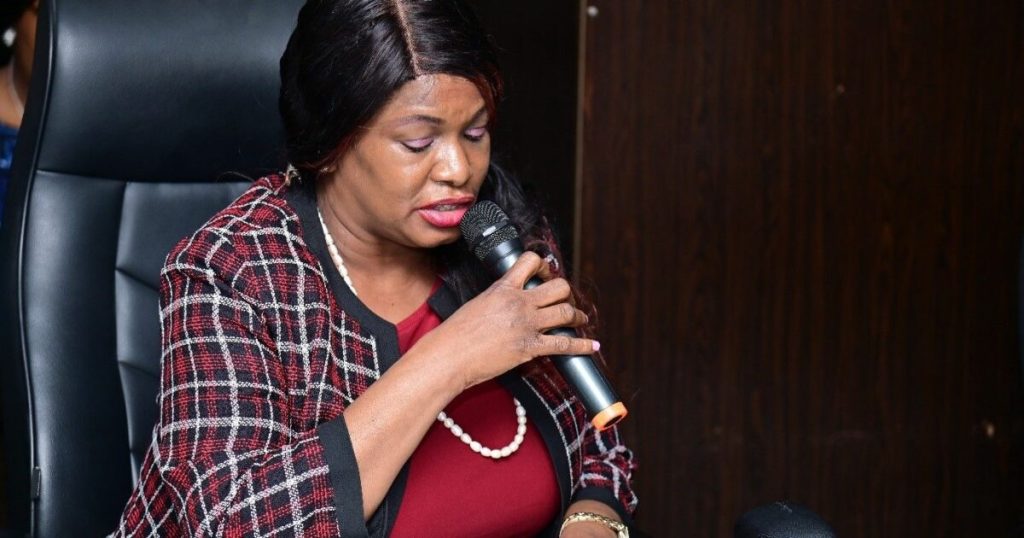The Nigeria National Petroleum Corporation (NNPC) Foundation embarked on a significant healthcare initiative, providing 1,000 free cataract extraction surgeries in Umuahia, Abia State. Mrs. Emmanuella Arukwe, Managing Director of the NNPC Foundation, underscored the profound impact of cataracts on national development, emphasizing that visual impairment hinders individual productivity and contributes to societal burden. With cataracts being a leading cause of preventable blindness in Nigeria, affecting an estimated 43% of visually impaired individuals, the Foundation’s intervention aimed to restore sight and empower individuals to contribute meaningfully to the nation’s progress. The program targeted those whose livelihoods and overall well-being had been severely compromised by cataracts, transforming them from dependents into active participants in the economy.
The Umuahia initiative proved remarkably successful, exceeding expectations in terms of community participation and the number of individuals screened and treated. Over 2,000 people presented themselves for screening across Aba and Umuahia, leading to 477 individuals being booked for surgery. This enthusiastic response underscored the acute need for accessible eye care services and the immense value placed on the restoration of sight by the affected communities. Mrs. Arukwe expressed immense satisfaction with the program’s execution, praising the commitment of Abia State Governor Alex Otti and the high quality of the participating hospitals. The effective mobilization efforts across the state ensured a broad reach, encompassing individuals from various local government areas.
The NNPC Foundation views this cataract surgery initiative as a crucial component of its broader commitment to health improvement in Nigeria. While focusing on cataracts and glaucoma, the Foundation also undertakes other health initiatives, demonstrating a holistic approach to addressing critical healthcare needs. The success in Umuahia and other regions, notably the South-West, where four congenitally blind children regained their sight, reinforces the Foundation’s dedication to expanding the program. While resource availability will influence the frequency, the intention is to make the free cataract surgeries an annual event, extending its benefits to a wider population.
Abia State Governor Alex Otti, represented by Commissioner for Health Prof. Enoch Ogbonnaya Uche, hailed the program as aligned with his administration’s vision for improved healthcare and quality of life for Abians. The state government’s commitment to matching words with action is evident in its ongoing infrastructural developments within the health sector. The collaboration between the NNPC Foundation and Abia State government exemplifies a successful partnership between public and private sectors in addressing pressing healthcare challenges. This collaborative approach strengthens the program’s impact and ensures its sustainability.
Dr. Betty Emeka-Obasi, Senior Special Assistant to the Governor on Special Duties and Administration, Abia State Eye Health Management Bureau, highlighted the debilitating consequences of untreated cataracts, emphasizing the urgency of interventions like the free surgery program. Dr. Ngozi Azodo, Special Adviser to the Governor on Health, commended Governor Otti’s instrumental role in securing the NNPC Foundation’s support for the initiative. Their insights further emphasized the importance of prioritizing eye health and making accessible treatment options available, particularly for vulnerable populations.
Beneficiaries of the free cataract surgery expressed profound gratitude to the NNPC Foundation and the Abia State Government for this life-changing intervention. Their testimonies highlighted the transformative impact of the program, enabling them to regain their independence, participate actively in their communities, and contribute to their families and society. The presence of traditional rulers, local government officials, and other government functionaries at the event underscored the widespread support and recognition of the program’s significance. The collective endorsement from community leaders and government officials highlighted the program’s success and the shared commitment to improving the well-being of the people of Abia State.














